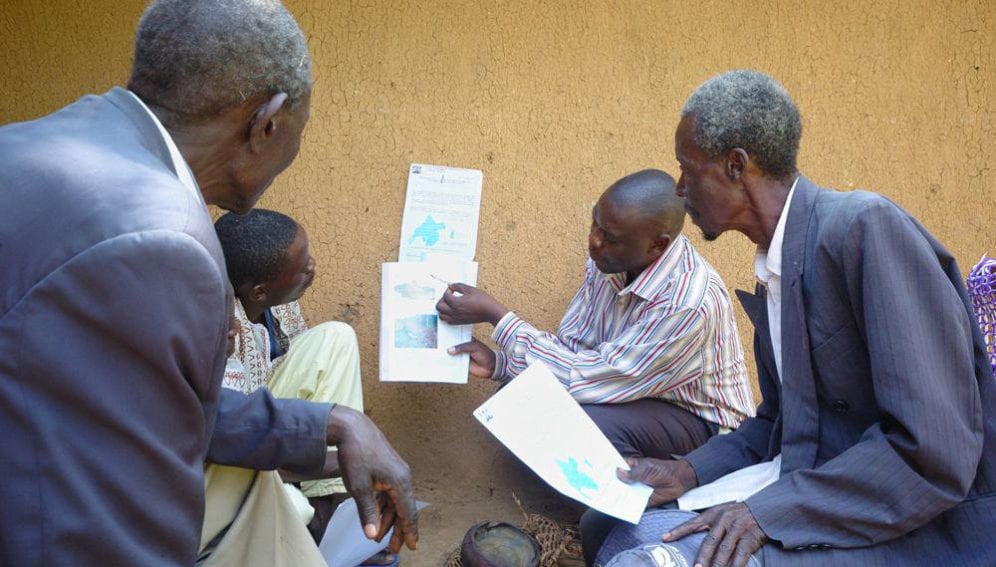By: Jan Piotrowski
Send to a friend
The details you provide on this page will not be used to send unsolicited email, and will not be sold to a 3rd party. See privacy policy.
The United Kingdom’s Department for International Development (DFID) has come a long way in renewing its science focus since it launched its most extensive research strategy in 2008, but critics say the department still employs too few scientists.
Over the past ten years, DFID has had a mixed record on science. It came under fire in 2004 for poor use of science in its aid efforts, and was the target of a critical report calling for a new scientific culture within UK aid. DFID then restructured its research activities, created a chief scientist post, began a science for development strategy, and, after a delay, in 2008 appointed a head of research and launched the research strategy.
The 2008-2013 research strategy was part of a clear change of direction, says Tim Wheeler, deputy chief scientific advisor of DFID’s Research and Evidence Department.
“The business model of development programmes was changed to explicitly require an assessment of the evidence,” he tells SciDev.Net.
He says there has been a revival of evidence-based decision-making within DFID in the last five years as a result of the strengthening of scientific capacity.
“We made a very specific call on research — how can we use techniques of research to provide the evidence for policy decisions or practice changes?”
The strategy demanded a focus on four aspects of development research: creating new knowledge, creating new technologies, ensuring evidence effectively influences policy, and building the capacity to conduct and use research.
Aiding the spread of flood-resistant ‘Scuba rice’ and solar lanterns, and establishing a popular online research portal to diffuse research results are just a few examples of how DFID is pursuing these objectives, says Wheeler.
DFID will continue to be guided by the four principles as it adapts to a changing development landscape, but it will not commission a new research strategy, says Wheeler. Important fields, such as data for development, may be added to the six existing priority areas: health, climate change, growth, sustainable agriculture, governance in challenging environments, and future challenges and opportunities.
A number of changes since 2008 have helped to boost scientific capacity across the department and complement the strategy, says Wheeler, including a new government keen to improve evidence-based development.
Significant improvements mean that half the staff — some 30 people — of the Research and Evidence Department now possess doctorates, and these are supported by three top academics on secondment and a further six to ten research fellows at any one time, he says.
In contrast, in 2008 there were no senior research fellows, only one full professor (the chief scientific advisor) and fewer than ten staff were estimated to have PhDs, according to DFID.
Establishing an independent research advisory group and almost doubling its pool of professional advisors to around 800 has also increased the rigour of research and development activities, Wheeler adds.
“Expertise can be of the highest quality but if you lack in-house resources, you have difficulty articulating the right question and interpreting the answers you receive.”
Peter Guthrie, University of Cambridge
A 2011 independent review praised these actions as important steps towards better use of scientific evidence. [1]
But it also said DFID should make steps to avoid current and future gaps in internal expertise in areas such as quantitative social science, operational research, agriculture, veterinary science, engineering and infrastructure, and evaluation.
And support of science within DFID looks set to continue, with a recent analysis from the Campaign for Science and Engineering, a UK science advocacy group, showing that spending in the department on research and development is on the rise.
The proportion spent on research and development jumped six per cent between financial years 2010-11 and 2011-12 and now represents 3.7 per cent of the total departmental budget, it finds.
While welcoming progress, some critics also point to a shedding of in-house expertise, a common trend among international aid organisations, as a major limitation to the agency’s ability to conduct research and influence development policy.
Brian Greenwood, a professor of clinical tropical medicine at the London School of Hygiene & Tropical Medicine, has seen a marked change in how DFID views science.
Engagement with the UK’s Royal Society, in commissioning a report to help formulate the research strategy — to which Greenwood contributed — and in an ongoing joint initiative to build scientific capacity in Africa, clearly indicates DFID’s intention to engage with academic institutions, he says.
But external advice is no substitute for in-house expertise — an area in which the agency is still sorely lacking, he adds.
This concern is echoed by Peter Guthrie, professor of engineering for development at the University of Cambridge, United Kingdom, who says that although DFID’s leaders acknowledge the central role of science and engineering, expert scientists are spread too thinly compared with 15 to 20 years ago.
“Without internal scientists, there is an improved likelihood that you will identify fewer interventions in development where science is a primary component,” he tells SciDev.Net. “Expertise can be of the highest quality but if you lack in-house resources, you have difficulty articulating the right question and interpreting the answers you receive.”
Wheeler rejects the argument that scientist numbers are too low, pointing to the significant increase in capacity that DFID has achieved in the past five years, and says there are no plans to increase them.
DFID’s research strategy 2008-2013
DFID is a SciDev.Net sponsor.














